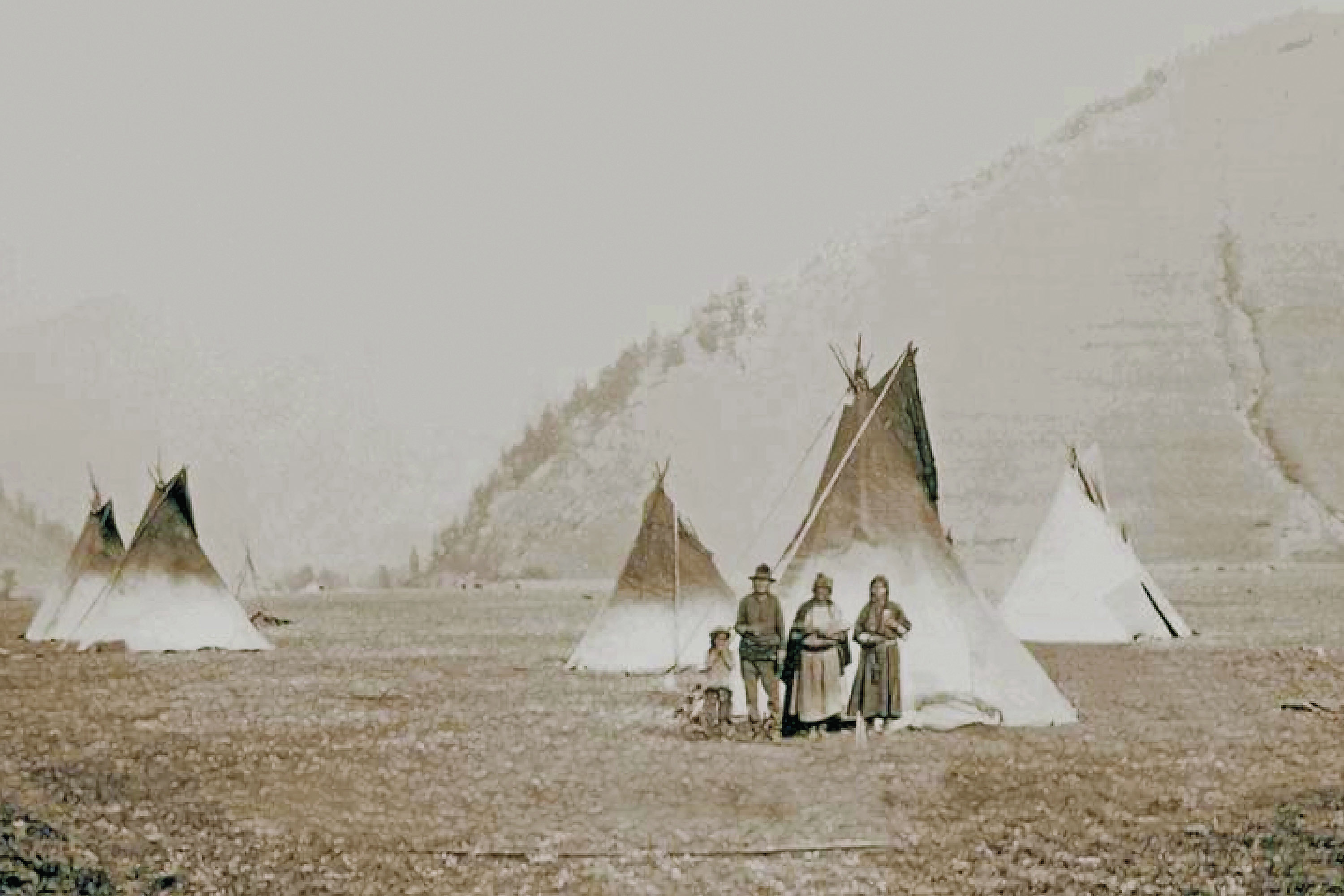- Editorial Offices
- 203 Brantly Hall
- Missoula, MT 59812
- (406) 243-2488
- themontanan@umontana.edu
Artifacts: Missoula's Bible
The ceremonial good book used to inaugurate President Bodnar has its own story.

By Jenny Lavey
In most academic institutions like UM, there’s an important benchmark of leadership change. We call it inauguration and it includes regalia, music, students, faculty and staff members, community members, ceremonial proceedings and often, a historical text.
On Oct. 26, 2018, when President Seth Bodnar was inaugurated as UM’s 19th president on the front steps of Main Hall, he placed his hand on the University’s Bible and pledged his solemn oath to lead the UM.
It wasn’t just any Bible.
The ceremonial good book used to usher in the University president once belonged to a Missoula founder who helped build Missoula with the same vision and perseverance we trust Bodnar will bring to Main Hall.
His name was Francis Lyman Worden. It was his 168-year-old Bible, brought down from the fourth floor of UM’s Mansfield Library Archives and Special Collections to be used for the first time in a UM inauguration.
The origin of the request to use a Bible with historical ties to Montana came from Bodnar himself. What UM archivist Donna McCrea provided has its own story.
Copyrighted 1851, the cover is embossed with Worden’s initials. The pages are the shade of yellow only age can offer. It was small enough to be portable and leather bound with gilt-edged pages, suggesting it was a special item.
One can appreciate how scripture may have comforted a man making a life for himself in an unkind western territory about 30 years shy of Montana’s statehood. Originally born in Vermont in 1830, Worden ventured west and planted roots in what became Missoula County. Along with another early Missoula giant, Christopher P. Higgins, Worden opened a trading post in 1860 near Hell Gate in what was then Washington Territory (near today’s Frenchtown).
The Washington Territorial Legislature officially created Missoula County that same year, with a county seat to be located “at or near” the Worden and Company Trading Post. Higgins and Worden later moved their business in 1865 to Missoula Mills, on the Clark Fork River, which grew into downtown Missoula. In 1868, Worden and Washington J. McCormick set the townsite of Missoula, Montana Territory. Worden and his wife, Lucretia, had seven children. Some of their descendants live in Missoula today.
The rest is history.
Thanks to a generous donation by UM alumnus Richard Lee Merritt, Montanans will forever have access to other rare treasures like Worden’s Bible, which represent cultural significance for the state.
For more than a quarter century, Merritt donated more than 1,300 books to UM’s library and created two funds to support book purchases, preservation and other activities. Working with the UM Foundation, which fundraises and manages donations on behalf of the University, Merritt willed the bulk of his estate to the Mansfield Library. Merritt died on Dec. 17, 2017. In the summer of 2018, his estate contributed nearly $2 million to create an endowment to support the library’s archives in perpetuity.
As with most scripture, there’s more than one message involved. While Worden and his Bible are no doubt a part of 19th-century western expansion into Montana, at about the same time and continuing today, many Indian tribes had to survive United States treaty impositions and removal from their homelands. UM’s campus is at the very center of their story, too.
Thus, Tony Incashola, a tribal elder with the Confederated Salish and Kootenai Tribes of the Flathead Reservation, was an honored guest at Bodnar’s October inauguration. He offered a blessing to Bodnar, who acknowledged UM’s campus as an original territory of Native peoples that is “very much an active part of our present.”
At the Montanan, we think there was a special blend of reverence at work on inauguration day. It starts with Missoula’s earliest known Bible and a Native blessing, showing what’s possible for all of us who love UM, thanks to all of those who came before us.
The new president may well have the better angels and spirits of Missoula looking down on Main Hall.
Not a bad way to start.




